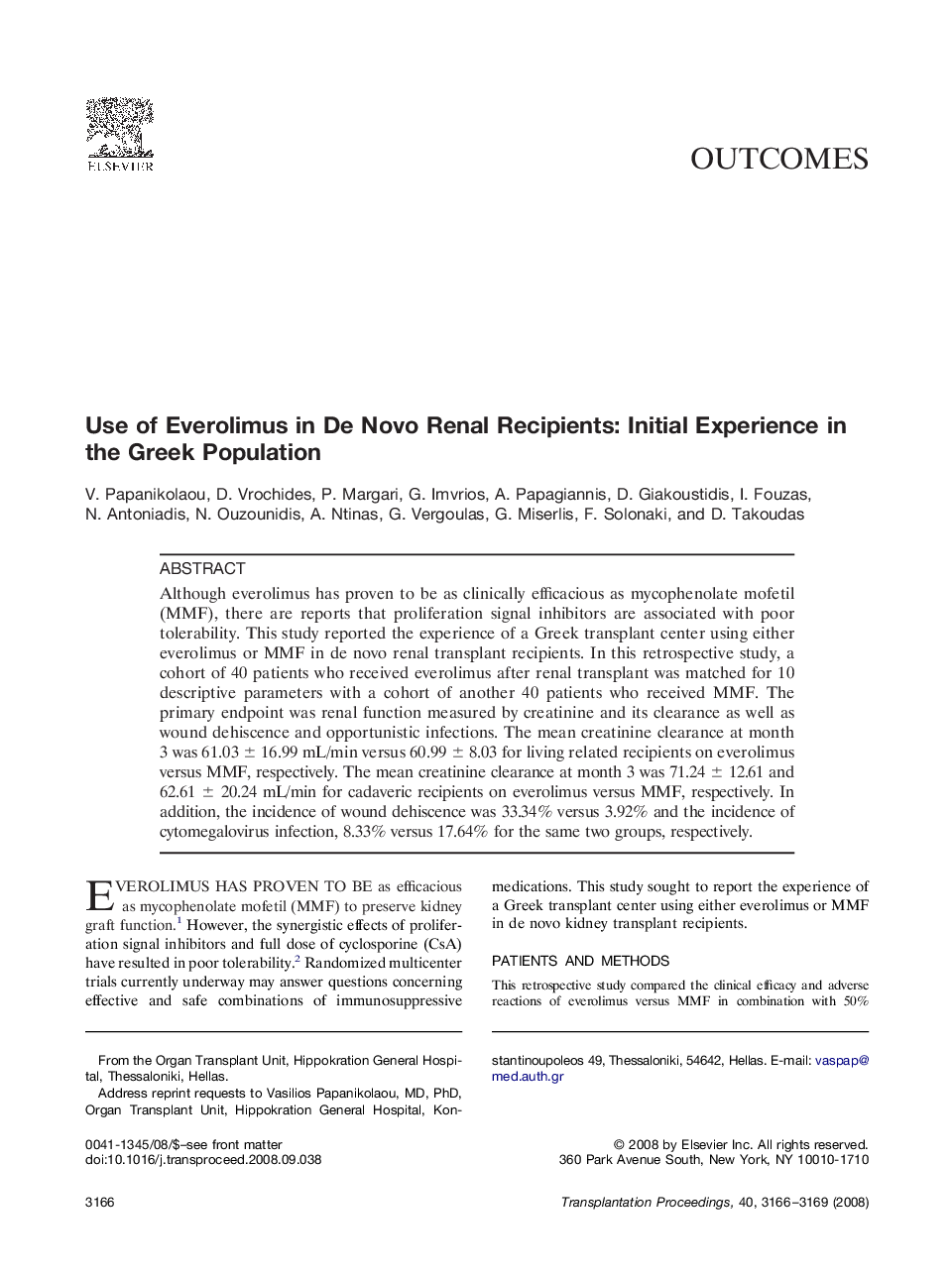| Article ID | Journal | Published Year | Pages | File Type |
|---|---|---|---|---|
| 4261381 | Transplantation Proceedings | 2008 | 4 Pages |
Although everolimus has proven to be as clinically efficacious as mycophenolate mofetil (MMF), there are reports that proliferation signal inhibitors are associated with poor tolerability. This study reported the experience of a Greek transplant center using either everolimus or MMF in de novo renal transplant recipients. In this retrospective study, a cohort of 40 patients who received everolimus after renal transplant was matched for 10 descriptive parameters with a cohort of another 40 patients who received MMF. The primary endpoint was renal function measured by creatinine and its clearance as well as wound dehiscence and opportunistic infections. The mean creatinine clearance at month 3 was 61.03 ± 16.99 mL/min versus 60.99 ± 8.03 for living related recipients on everolimus versus MMF, respectively. The mean creatinine clearance at month 3 was 71.24 ± 12.61 and 62.61 ± 20.24 mL/min for cadaveric recipients on everolimus versus MMF, respectively. In addition, the incidence of wound dehiscence was 33.34% versus 3.92% and the incidence of cytomegalovirus infection, 8.33% versus 17.64% for the same two groups, respectively.
